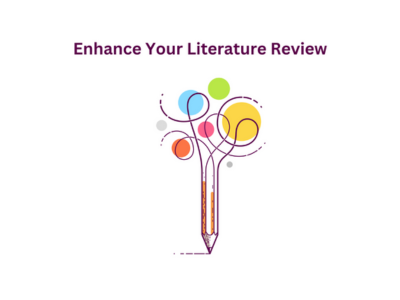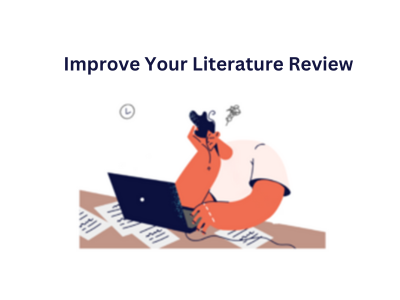Many students approach their literature reviews by emphasising who (i.e., the authors of each reference) is saying what. Each paragraph begins with the authors’ names.
This approach is not advisable as it shifts the focus to the authors rather than the content of their statements.
Consider the following paragraph as an example of this unfortunate who says what writing style. Notice how the focus is on the who – i.e., on the authors. The context is the benefits and challenges of a four-day working week:
Author 1 presents findings that show that employees who work a four-day week felt that the organisation cares about their well-being. According to Author 2, employees were more focused on their work. Author 3 makes a similar observation. Author 4 concurs as they found that employees working a four-day week arranged fewer and shorter meetings so that they could finish their work in a shorter time. Author 5 posits that workers will be fatigued and unable to keep up the pace required to finish their work in the reduced hours. Furthermore, Author 6 found tensions between employees in knowledge-based roles who are paid monthly and those in service-based roles who are paid hourly. Similarly, Author 7 suggests that differently paid employees who work in teams will be difficult to manage in a four-day week.
According to Bloom’s (2001) taxonomy of conceptual levels, students who adopt this who says what writing style are essentially engaged in description and reporting, lacking deeper analysis or synthesis.
Analysis and synthesis are required when writing your literature review.
Now look at how the same material has been rewritten focussing on analysing and comparing what the authors are saying (with references). Notice that what the authors say is now organised, compared and contrasted into the themes of benefits and challenges. According to Bloom’s (2001) taxonomy, students who write this way write at a higher conceptual level as they have synthesised what they have read.
Here is the improved paragraph showing the synthesis of the sources:
The research literature provides evidence of both benefits and challenges associated with a four-day workweek. Benefits include employees’ perceiving their organisations as caring for their well-being, and consciously adopting a more focused, efficient approach to completing their work in fewer hours (Author 1; Author 2; Author 3; Author 4). However, greater efficiency may produce challenges for employees who cannot keep up the pace required in a four-day week resulting in employee fatigue and burnout (Author 5). A further challenge may arise from conflict between employees in knowledge-based roles who are paid monthly, versus service-based employees who are paid hourly and cannot benefit from a reduced week (Author 6). Furthermore, managing teams of employees with different pay structures may provide an additional challenge (Author 7).
Adopt this strategy of organising and comparing what is being said (with references) rather than focusing on who is saying to raise the conceptual level of your writing.



